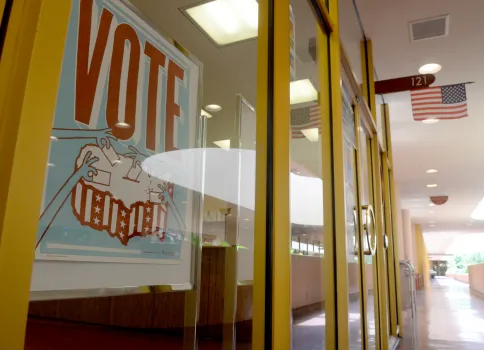The Tough Realities of the Farming Industry
November 4, 2015
You wake up at sunrise to the sound of the rooster call, have your fresh milk and eggs for breakfast, then walk out into the beautiful morning to go wake all the animals up. Then, after a hard day’s work, you walk back to the house, have some dinner, and go to bed early to wake up and start all over again. This is how a farmer’s everyday life is typically perceived. However, in reality, farm work is incredibly difficult, especially with the recent problems the local industry has been experiencing. Consequences of the drought, the difficulties of proper animal care, and the disparity between organic and conventional farming are just some of the problems that local farmers face every day.
California’s prolonged drought has affected the lives of thousands throughout the state, specifically farmers. In the farming industry, the owners need to buy alfalfa hay to feed their cows. Alfalfa is the most nutritious kind of hay and it’s becoming increasingly more expensive due to the drought. Additionally, with the lack of water, there is less grass to make hay, forcing farmers to look out of state for necessary resources.
Moreda says “We’re paying a higher price because there’s less hay because there’s not as much water and we’re paying a higher price for less quality hay.” This is because the grass is drier and less nutritious, and shorter growing seasons make for poorer quality. To meet organic requirements, the cows have to be fed 30 percent DMI (dry matter intake), but due to the lack of hay, fewer farms are able to meet the requirement.
Animal sickness is another issue. Petaluma farmer Annika Moreda, who runs a ranch and dairy farm that produces milk for the Petaluma Creamery with her husband Travis and three other workers, experiences problems every day with being organic. “If an animal gets sick we can’t give them medicine because we are organic.” The organic system is set up so that the cows would be milked until they die, however cows on the Moreda farm stop being milked before they get to that point and they are sold for conventional beef. This creates an additional challenge to an already difficult job, because they have to frequently buy new animals to replace those lost to disease.
There are also many problems in the salary differences between conventional and organic farming. Since there has recently been an increase in awareness and support for local, organic farmers, the conventional farmers are being paid far less and their businesses are falling apart because they lack the resources to provide for their animals. Moreda believes that conventional and organic dairy farmers should be paid based on the quality of their milk. Being an organic farmer herself, she says, “We’re getting paid what we deserve to be paid for how hard we work. It’s really hard to take a trip and it’s really hard to get some sleep.”
If Moreda were to change anything about the industry, she would focus on changing the perception of farming. Most people think that everything is going to be clean and smell like pine and all the cows will look perfect, because that’s how they look when they are displayed in fairs. The reality of it is that cows are dirty animals, machines break and the farms aren’t going to fit the public’s perception. Although there are quite a few problems that local farmers are experiencing, Moreda says that’s it’s all worth it. “You don’t do it because it’s a job or because it pays you, you do it because you love it.” She is very proud of the way farming has changed in the last 5 years. People are becoming much more aware of their local farmers, and with this awareness comes improvement.




























































Laurel • Jan 20, 2016 at 9:32 am
I love how you painted a picture for your readers in the beginning. It got me sucked into the article even more. You did a really good job of getting your points across.
Halle Morris • Dec 4, 2015 at 11:08 am
Great article! I really liked the first paragraph. I was not aware of the struggle that farmers go through.